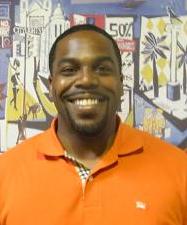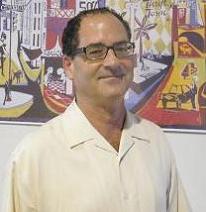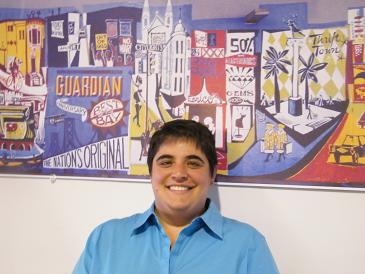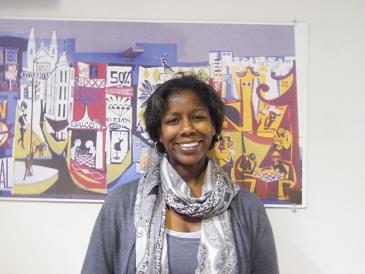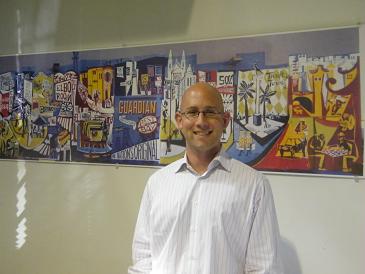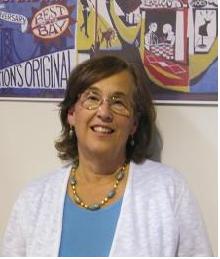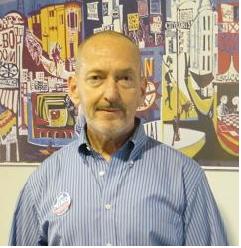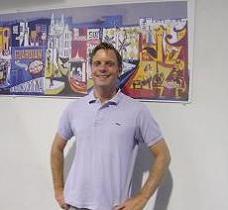steve@sfbg.com
More on SFBG
>>Links to our complete Newsom coverage, from 2006 to the present (Microsoft Word)
There are two Gavin Newsoms: the mayor San Franciscans have gotten to know over the last six years, and the candidate running for governor.
The contrast is dramatic. The central persona being pushed by the Newsom campaign — that of a postpartisan progressive who has united fractious San Francisco around innovative, common sense solutions to the most vexing problems using his considerable courage and political skills — seems like pure fiction to most City Hall watchers.
Here’s Newsom, the candidate, kicking off his campaign and describing a harmonious local political scene: "We stopped fighting over who was going to be in charge and started working together to find solutions."
Here’s the reality: Newsom is a politically isolated mayor who refused to heed the voter directive to meet regularly with the Board of Supervisors or take part in budget negotiations involving key community stakeholders. His spokespeople regularly belittle and deride progressive supervisors and organizations. He has vetoed consensus legislation on tenant protections, police foot patrols, new revenue measures, and new parking policies. He is proudly taking campaign credit for other people’s initiatives he once opposed. He has been absent from some of the most important policy debates in the city. He has demanded the resignations of all appointees and top officials, even those protected by contracts and fixed terms. His dysfunctional, politicized office has been criticized for its secrecy by both the civil grand jury and Sunshine Ordinance Task Force and for its emphasis on loyalty over competence by past and current employees.
He is utterly unwilling to engage with people who disagree with him. In fact, he refused the Guardian‘s month-old request to discuss the issues raised in this article.
"It’s like a Wizard of Oz creation. You pull back the curtain and there’s nothing there," said Aaron Peskin, who was regularly vilified by Team Newsom when he served as president of the Board of Supervisors. "He is kind of an empty, sad guy and his handlers have managed to create a persona that is fake and false."
A close examination of Newsom’s record and statements shows a history of contradictions. He has supported and opposed public power, decriminalizing marijuana, requiring employers to help pay for the city’s universal health care system, temporarily closing some streets to cars, shelter and treatment on demand for the homeless, higher clean energy standards, and a long list of other issues.
He called for Muni to be free, then insisted on doubling Muni fares.
You’d think this would be a formula for political failure, that eventually California voters would figure out the fraud. But that’s not necessarily true. The reality, political professionals told us, is that the general public just doesn’t care about the details of his mayoral tenure. Such nuances don’t translate well into a statewide campaign.
Newsom’s platform and persona are what voters want to hear right now — and they’re just believable enough to be an easy sell for modern media manipulators.
But the public ought to be paying attention — because the record suggests that Newsom is hardly a great candidate for governor.
FOR THE RECORD
The policy initiative Newsom cites most frequently on the campaign trail is Healthy San Francisco, a plan to provide health care to all city residents, mostly by requiring employers to provide health insurance to their workers or pay into a city program that covers visits to city clinics and hospitals.
"In my city, we’re well on our way to universal health care. How can we afford it? Well, we’re proving what you already know: it’s less expensive to keep people well than it is to treat their sickness," Newsom said in his announcement speech.
"Mayor Gavin Newsom isn’t waiting for the politicians in Sacramento to solve this problem — he’s created the only universal health care program in the country," reads the Newsom campaign Web site.
It may be true that preventive care saves money over the long run, but that has nothing to do with how San Francisco affords this program. And Gavin Newsom never created it.
First of all, Healthy San Francisco wouldn’t exist if then Sup. Tom Ammiano (now a member of the California Assembly) hadn’t spent years fighting for a universal health care plan paid for by employers.
And while Ammiano was being savagely attacked over the idea by the business community, a key constituency of the mayor, Newsom sat on the sidelines until Ammiano lined up enough votes to approve the plan. At that point, Newsom introduced his own health plan, worked with Ammiano to merge the two, and has been taking credit for it around the country ever since.
Ammiano credits labor, not Newsom, with doing the hard work of fighting business community opposition to Healthy San Francisco. "The mayor’s role was that we would keep him updated, but I don’t think he thought it was going to happen," Ammiano told us. "There’s no doubt he came along for the ride."
Going through the issues on Newsom’s campaign Web site, there are a startling number of claims that don’t match his record. A few examples:
"California must be ready for a wide range of natural disasters … [and] man-made disasters as well — terrorist attacks, hazardous material and oil spills, and biological and chemical threats," said the mayor, whose latest budget includes a 24 percent cut to the Office of Emergency Services and who appointed unqualified (but politically connected) Republican hack Annemarie Conroy to head OES, and who remained on vacation in Hawaii as San Franciscans responded to the Cosco Busan oil spill, the biggest in San Francisco Bay.
"In the midst of a national economic crisis, San Francisco’s economy has remained strong … Mayor Newsom — building on his experience in the private sector where he built a thriving enterprise of 15 businesses and created 1,000 jobs — has transformed the city’s economy," his campaign wrote. Yet in his latest budget, he argues how weak the city’s economy has become and uses the crisis to slash spending on public health, social services, building inspections, and other essential services in the biggest government downsizing in the city’s history. Biotech businesses have located in the city, as Newsom has often touted, but they aren’t paying any city taxes because of a measure he sponsored exempting them.
"Working largely with existing resources, Mayor Newsom has applied a little common sense and a lot of innovation to help turn San Francisco public schools into a statewide model for educational achievement," writes the campaign. But despite regularly claiming credit for schools in his stump speeches, Newsom has had little to do with the San Francisco Unified School District, which has avoided layoffs mostly because of support from city funds (thanks to a voter-approved measure authored by Ammiano) and a parcel tax spearheaded by downtown financier Warren Hellman and others. Newsom also has done little to help find solutions to the most controversial issues plaguing the school district in recent years, such as eliminating JROTC, school closures, desegregation, and the divisive tenure of former Superintendent Arlene Ackerman. Indeed, his biggest role was defending a superintendent so polarizing the board of education fired her.
That has been the most common complaint about Newsom from both his political allies and opponents: he’s always been unwilling to spend his political capital on anything that might help the city or solve its problems.
The polls may show that Newsom’s popular, but he has never been able to translate that into political success. Despite spending a record-setting $7 million and nearly two years on his first mayoral campaign, Newsom only beat the poorly funded, last-minute campaign of Matt Gonzalez by about five percentage points.
Two months into his first term, on March 3, 2004 Newsom’s signature Workforce Housing Initiative went down hard, as have most of the ballot measures he has supported. The one notable exception was last year’s Proposition G, a measure Newsom created along with U.S. Sen. Dianne Feinstein to give Lennar Corp. the exclusive right to develop more than 10,000 homes and a new football stadium on Hunters and Candlestick points and through much of southeast San Francisco. That plan remains the centerpiece of Newsom’s housing policy even as the housing market and the value of Lennar’s stock have both collapsed.
When it comes to the Board of Supervisors, Newsom’s candidates lose almost every time there’s a closely contested race. In the last election, Newsom backed Joe Alioto, Ahsha Safai, and Sue Lee, all top fundraisers in their respective districts — and all of them lost. Even in ultra-liberal District 9, where one of three well-qualified progressive candidates was virtually guaranteed to win, Newsom backed a business-friendly also-ran.
Two years before, Newsom gave his strong support to Doug Chan in conservative District 4 and Rob Black in District 6, home to Newsom nemesis Chris Daly. Newsom actively campaigned for both men harder than he has for any other supervisorial candidate — and both lost.
Newsom even lost control of his own party. While he was campaigning for Hillary Clinton in the Democratic Party presidential primary, Daly, Peskin, and the progressives put together a campaign to take control of the Democratic County Central Committee, besting Newsom-backed alternatives.
That’s not to say Newsom isn’t a shrewd politician. Indeed, the one move that put him on the national political map was the same one that ensured his popularity and reelection in San Francisco: his decision to issue marriage licenses to same-sex couples shortly after taking office in 2004.
There’s no evidence to refute Newsom’s claim that this was a principled decision stemming from his outrage at federal efforts to ban same-sex marriage. But as a side benefit, the move made Newsom of beloved figure among LGBT voters (who mostly cast their ballots for Gonzalez in 2003) and transformed Newsom from an ambitious and privileged young politician to an early civil rights leader in the eyes of many.
THE WAY HE WORKS
When Newsom unveiled his 2009-10 budget, it wasn’t in the Board of Supervisors Chambers, where there’s plenty of room for the press and public and where mayors have traditionally held these events. Instead, he made the announcement in his private inner office. And even though he invited local journalists, he filled the small room with department heads and supervisors and made the media peer in from an adjoining room. Then he spoke for nearly an hour and concluded the event without taking questions.
"I look forward to working with the Board of Supervisors," Newsom said, but nobody believed him. He made that same promise in January and then refused to work with supervisors or even to signal his intentions with the direction of this secretive budget.
It was an event that was in many ways emblematic of Newsom’s tenure as mayor, which he has always insisted be conducted on his terms, even when those terms contradict provisions of the City Charter, ignore his supposed partners in governance, or infer an almost kingly power that denies the notion of checks and balances on power.
"It’s totally top secret. They’re trying to control the message as much as possible," Sup. John Avalos, chair of the boards’ Budget Committee, told us before the event. "It’s going to be a gubernatorial campaign event, with a carefully crafted message that has more statewide implication than local implications."
Newsom visited the supervisors fewer times than any mayor, a trend with both real and symbolic meaning. Former Mayor Willie Brown was often criticized for heavy-handed tactics, but at least he was engaged with the political process by being willing to take on his political opponents and fight it out in public.
Newsom ended the tradition of delivering the legally required State of the City speech at the board chambers, instead holding it in locations around the city that emphasized something his political advisors found important.
Then last year, he dispensed with the speech entirely and highlighted what a tech-savvy hipster he is by releasing a set of marathon YouTube videos, 7.5 hours in all, and calling it his State of the City speech, a stunt that was universally panned by local journalists, even by normally sycophantic Examiner columnist Ken Garcia.
Newsom’s administration earned repeated condemnations from the Sunshine Ordinance Task Force for withholding public documents and information, from internal e-mail to his daily schedule.
"Withholding information is the name of the game for this administration. It’s how they work," Avalos said.
Newsom had developed such a reputation for political disengagement that voters overwhelmingly approved Proposition I in 2006, calling for the mayor to show up at Board of Supervisors meetings once a month for policy discussions. But Newsom simply refused to go, deriding the idea as "political theater" and announcing that he would instead hold regular forums in the community, which turned out to be highly scripted political events with department heads required to attend.
It wasn’t the last time he would use department heads as campaign props. The next year, in September 2007, Newsom suddenly decided (without seeking any legal advice first) to ask for resignation letters from all department heads and top officials, as well as appointees to city board and commissions.
Although he cast it as a bold, fresh move to shake things up, Newsom didn’t have the authority to do so. Many commission members serve fixed terms to prevent the mayor from exercising just this kind of political pressure on supposedly independent bodies.
Ultimately Newsom accepted only a few of the more than 200 resignations he requested. But the message was clear that Newsom was in charge and that he demanded the personal loyalty of those who serve in city government. Not long after, he summarily fired two popular and effective department heads — Susan Leal at the Public Utilities Commission and Margaret Brodkin at the Department of Children Youth and Families — because they were taking independent steps and not following the mayor’s script.
CHARACTER AND CONNECTIONS
Newsom is campaigning as a man of integrity. "I’m not the kind of person who says one thing in private and does another in public. You will know where I stand," he told the California Democratic Party Convention on April 25.
Yet at the end of January 2007, we got a telling peek at the actual moral fiber of Team Newsom. That was the week a pair of simmering scandals burst into public view, both of which were handled disingenuously by Newsom (see "Newsom’s scandals," 2/7/07).
The first was an incident in which Newsom’s press secretary, Peter Ragone, was caught by the SFist blog using fake names to post comments to that and other blogs attacking Newsom’s critics. When confronted about it by the Guardian and other journalists, he lied and blamed the posts on an imaginary friend, only admitting the truth once he was finally cornered.
But that admission was overshadowed by even bigger news that day, Jan. 31, when the San Francisco Chronicle printed a long-rumored story about Newsom’s affair with his political appointments secretary, Ruby Rippey-Tourk, who was married to Newsom’s reelection campaign manager and close confidante, Alex Tourk.
Newsom held a brief press conference to admit that "everything you’ve heard and read is true and I’m deeply sorry about that" and say he was getting back to business. He took no questions.
The next day he announced he had a drinking problem and was seeking help from the Delancey Street Foundation. Again, he took no questions and offered no answers about how he was casually dealing with that intensive (and politically connected) program (see "Sorta, maybe an alcoholic," 2/28/07).
A month later, controversial press secretary Ragone was moved from the Mayor’s Office to Newsom’s reelection campaign. Today, Ragone is the spokesperson for the gubernatorial campaign.
His replacement, Nate Ballard, has been every bit the scorched earth political operative, using glib put-downs to respond to serious requests for information and offering up belittling one-liners to attack progressive supervisors. Together with political consultant Eric Jaye, the ambitious trio is widely considered to be running the Mayor’s Office.
For years, Team Newsom has been perceived as looking beyond San Francisco and failing to establish any significant political base here.
"He’s not put together any kind of coalition. He is sort of an island," University of San Francisco political science professor Corey Cook told us.
Neither has Newsom been the reliable representative of business interests the downtown power brokers thought they were getting when they dumped money into his 2003 mayoral campaign. Many privately grumble that their desires have taken a back seat to Newsom’s personal ambitions.
But there are several well-documented examples of Newsom flipping his position on an issue after getting a call from a high-profile supporter. The first significant one came in December 2005 when Gap, Inc. founder Don Fisher convened a meeting to demand that Newsom oppose an ordinance limiting the amount of parking that could be built along with housing in the downtown core, progressive legislation championed by Newsom’s planning director Dean Macris.
Fisher and other downtown power brokers were angry with Newsom for being disengaged and letting progressives take control of the city’s agenda. As Guardian reporting later revealed (see "Joining the battle," 2/8/06), Newsom agreed to oppose the legislation and support an alternative written by a group of developer attorneys, which went nowhere. He eventually vetoed the good legislation, demanded some pro-developer loopholes, and signed the weakened legislation.
Another notable corporate-inspired flip-flop came last year when Pacific Gas and Electric Co. urged Newsom to reverse his support for installing two city-owned combustion turbine power plants, which he complied with within two weeks of the May 5 request (see "Ongoing threat," 5/21/08).
Critics contend that PG&E didn’t want any public power projects, and even though Newsom told the Guardian that he supported public power during both of his mayoral election endorsement interviews, he went along with PG&E’s wishes (claiming it was really about fossil fuel generation, not public power).
But within a few months Newsom decided he was actually against public power, using the new stance as his reason for opposing the Clean Energy Act (which would have set high renewable energy standards and created a study asking whether public power was the best way to meet those goals). After PG&E spent more than $10 million, the most ever on a San Francisco campaign, the Clean Energy Act was soundly defeated last November.
Yet confronting Newsom about any of his contradictions, flip-flops, and unsavory actions can get questioners black-balled. KGO-TV reporter Dan Noyes was shut out of the Mayor’s Office after he asked tough questions. And earlier this year, Newsom blocked me on Twitter after I publicly questioned his penchant for the communications medium (and the spelling errors that riddled his tweets).
"He’s notorious for having a thin skin," Ammiano told us, relaying a recent incident in which Newsom called Ammiano early one morning to yell at him after a blog quoted Ammiano for raising concerns that Newsom’s budget cuts are undermining the Healthy San Francisco program.
Peskin used these adjectives to describe Newsom: narcissistic, defensive, insecure, petulant, thin-skinned, and paranoid.
"Like a lot of people who come from privilege, he’s a do-gooder. And that, a lot of times, doesn’t allow him to see the forest for the trees," Ammiano said.
It is that gulf between how Newsom is and how he presents himself that frustrates many San Franciscans.
"If Gavin Newsom were as effective as he’s selling himself as, we certainly wouldn’t be in the mess we’re in," said Debra Walker, a progressive activist, member of the Building Inspection Commission, and candidate to replace Chris Daly on the Board of Supervisors. "The problem is, he’s charming. He does well at power points and engaging the audience. He’s good. But we all know it’s empty. He doesn’t have much to do with government. He’s just not engaged."
Cook told us that Newsom "has not worked closely with the Board of Supervisors." But as he runs for governor, he’s attempting to portray that political isolation as a kind of strength.
"In this economic environment," said Barbara O’Connor, a political communication professor at Sacramento State University, "it’s the only message he has."
DOES IT MATTER?
Whether or not Newsom fits the image of the postpartisan pragmatist he’s running as, most political experts say that’s what Californians — frustrated that the two major parties have essentially fought to a stalemate — are looking for right now.
"The whole postpartisan argument is more or less where voters are here in California," Cook said.
"They want someone who’s going to come in and take charge," O’Connor said. "You want something good at win-win conflict resolution, but not someone who will do anything for votes."
It’s unclear at this point whether Californians will see Newsom as a smarmy politician pandering for votes, or the real deal example of a next-generation political leader.
"There are disconnects and there are hypocrisies, but they’re not going to matter a helluva lot. He’ll get to play this game on his ground," said David Latterman, a San Francisco political consultant who works with moderates like Newsom.
"We forget what the average person out there thinks or cares about," he continued, referring to San Francisco political insiders. "Local city politics bores more people. The stuff he hasn’t done well is stuff nobody cares about."
Latterman says Newsom has an amazing ability to survive his many scandals and shortcomings and remain popular. "The guy is Teflon, he really is. Newsom is a charming guy. In a crowd, people like him."
This isn’t an assessment everyone agrees with. Certainly Newsom can come off as arrogant, a trait displayed during his "it’s coming, whether you like it or not" speech on same-sex marriage that the Yes on Proposition 8 campaign used so effectively against him in television ads.
O’Connor said she recently moderated a panel Newsom was on and wasn’t impressed. "I was amazed at how facile he is. He has a long way to go to being able to connect to the person."
Cook and Latterman say Newsom has presided over a city that has shown real leadership on health care, environmentalism, technological innovation, and other issues Newsom is running on. "Newsom, as the leader of the city, gets credit for that," Latterman said.
That may infuriate San Franciscans who know more about Newsom, but that anger isn’t likely to cause Newsom too many problems on the campaign trail. The stronger he gets hit by San Francisco progressives, the more he can use those attacks to explain why SF wackos are so hard to work with.
"He’s trying to turn all those things into positives, saying that’s why everyone hates him. It’s Arnold 101," Cook said.
Newsom’s playing hard to the youth vote, boasting of how many fans on Facebook and followers on Twitter that he has — but not all his positions are in step with young voters.
Ammiano noted how Newsom opposes his legislation to legalize and tax marijuana, an issue that polls strongly with young people and that could help the state’s fiscal crisis. Ammiano said he asked many of Newsom’s young volunteers at the recent California Democratic Convention (although few were from San Francisco) about the issue, and they were surprised at Newsom’s position. "A lot of the young people who supported him at the Democratic convention did not know he’s not supporting my marijuana bill [Assembly Bill 390]," Ammiano told us.
There’s also the fact that Newsom opposed this moment’s big change candidate, President Barack Obama. Instead, he joined with most political establishment Democratic stalwarts and backing Hillary Clinton in the primaries.
In fact, some of Obama’s California supporters are looking to bring a candidate who shares their values into the race and have formed a group called Change Candidate for California to recruit a gubernatorial candidate.
"We’re not convinced that Mayor Newsom is the best candidate to lead us out of this crisis," said Steve Fowler, one of the group’s founders. "We are inspired by the Obama campaign and we want a leader who can reengage Californians with their state."
O’Connor also thinks there’s a good possibility others will get into the race: "It’s not a good field on either side and you may see some people come in as a result."
Yet for now, Newsom the candidate looks like a strong contender, despite his myriad flaws.
"But the question is, How does that brand govern?" Cook said.
Being the postpartisan maverick may play well at the polls, but Gov. Schwarzenegger is proving that it translates into being unable to govern the state effectively or find common ground between the two polarized parties.
"It’s a good campaign position," Cook said. "But I don’t think this is a viable governing strategy for California."

